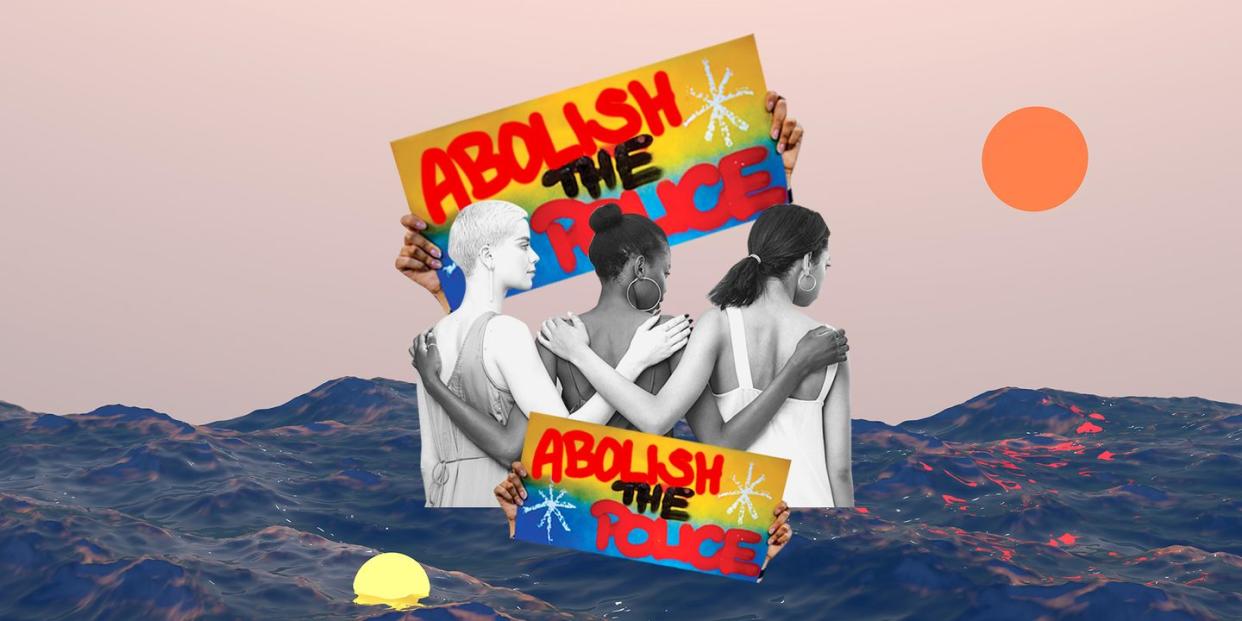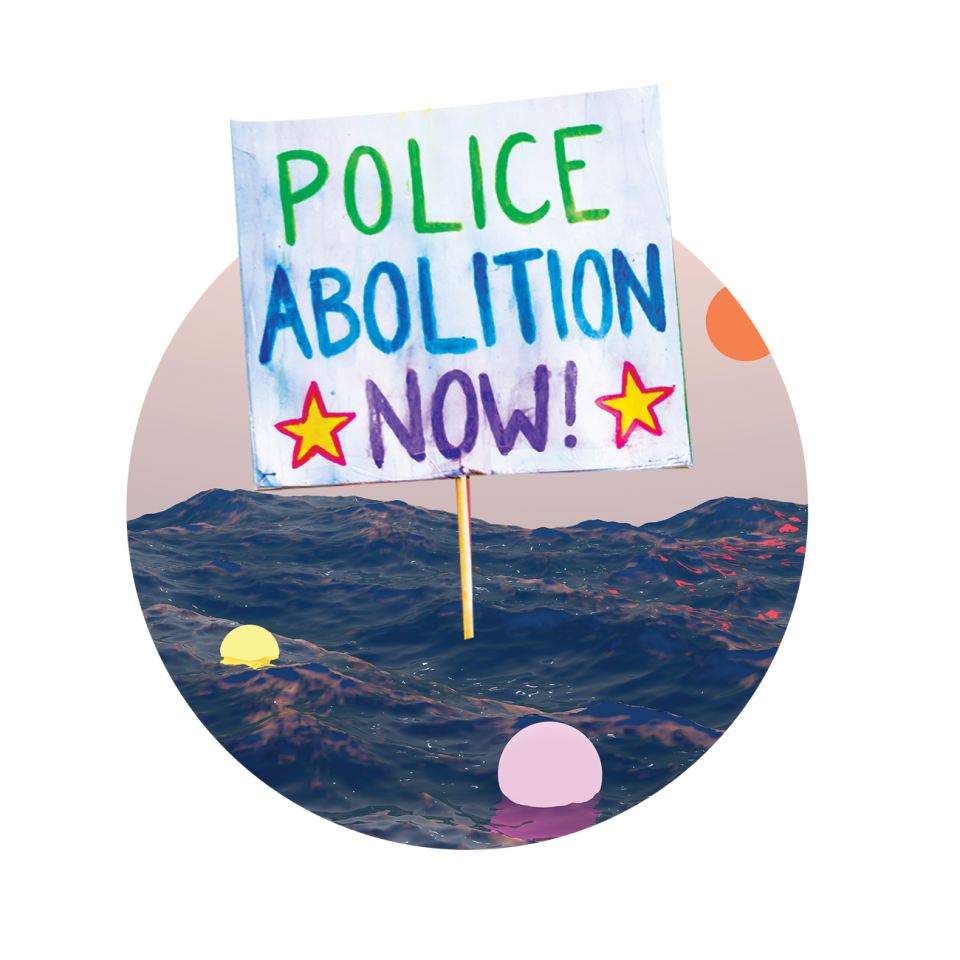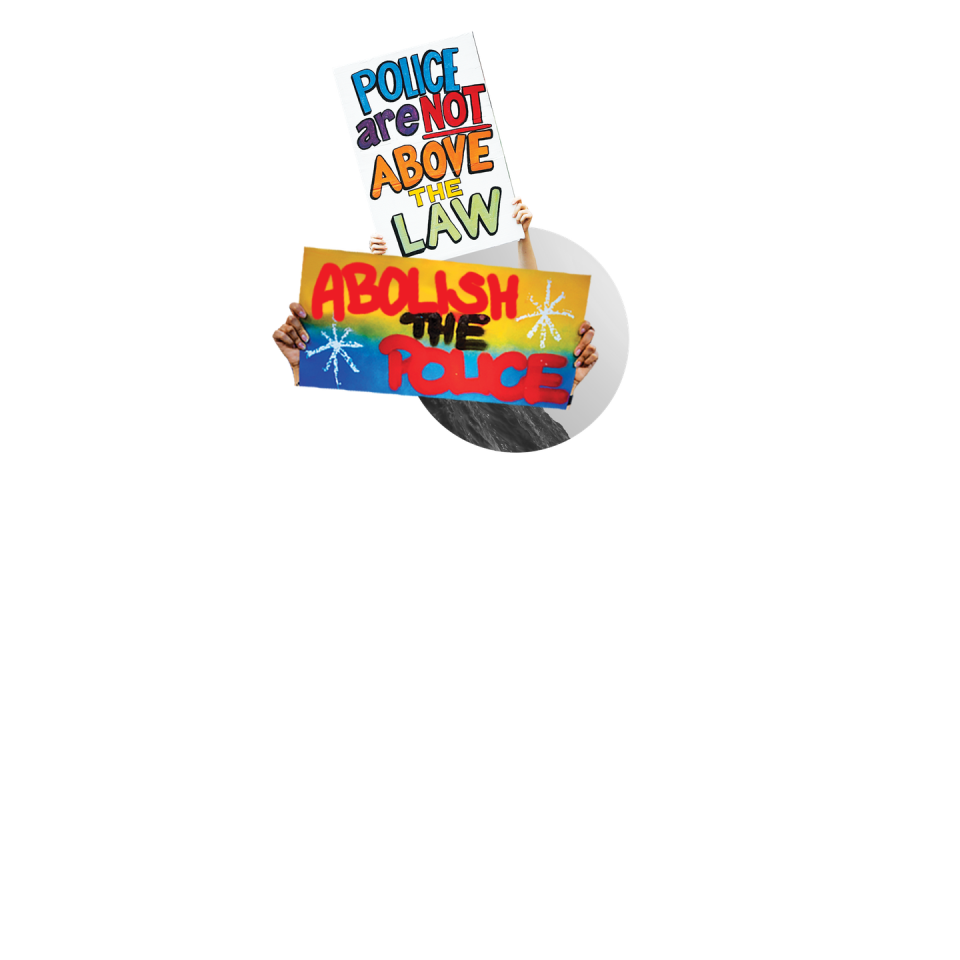We Survived Rape. Don’t Use Us to Support the Police.

"What about rape?!” That’s the kind of question that’s thrown around when people make arguments against abolishing the police. But as survivors of sexual assault who believe in ending the carceral system, we fear our stories will be used to promote police power and state violence. We have seen police, civilians, and elected officials—including Donald Trump—use survivors like us in a last-ditch effort to make communities believe police are needed.
Victims of sexual assault are told time and again “the right thing” to do is report. But we have repeatedly seen that police fail victims by not making them feel heard, supported, safe, or believed. And that’s why we are unequivocally calling for abolishing the police state. The police force in the United States was created to catch runaway slaves and protect white wealth. It was not created to ensure safety for all. To end the cycle of brutality, something new based on principles of justice must be built on the ashes of the police state.
The criminal injustice system often works against survivors. For instance, look at the story of 19-year-old Oluwatoyin “Toyin” Salau, who was found dead on June 15 in Tallahassee, Florida, after being sexually assaulted earlier that month. Salau reported her assault to the police but was dismissed and told more evidence would be needed to investigate. The police failed to operate from a survivor-centered approach, and they failed Salau when they would not move forward with her case, invalidating her experience and putting her safety at risk. Unfortunately, Salau’s story is not unique.
In fact, police sexual violence is the second most reported form of police misconduct. As Beth Richie and Luana Ross describe in their research, women of color are generally in prison as a direct or indirect result of gender-based violence. Many are arrested during domestic violence disputes because their abuser claims they were also violent or because they were trying to defend themselves. This was the case of 31-year-old Marissa Alexander, who spent three years behind bars after firing a warning shot when her husband attacked and threatened to kill her. In 2012, a jury convicted her in 12 minutes and she was originally sentenced to 20 years in prison.
The year before, Ky Peterson, a transgender rape survivor, met a similar fate. Peterson was walking home from a convenience store when he was attacked and knocked unconscious. When he awoke, Ky was being raped. Afraid for his life, he fought back and ultimately killed his attacker. He was sentenced to 15 years in prison. The nurse who performed an examination of Peterson confirmed that he had been brutally raped yet felt the need to point out that Ky “didn’t act like a woman who had been raped,” misgendering him in the process.

These are only a few examples of how the system is woefully imperfect, and often dangerous, for survivors. And yet, we—both of the writers behind this piece—have called 911. In crisis, we have desperately sought emergency assistance from law enforcement because we didn’t think we had access to other good options.
From Shivana: For me, calling 911 to assist an undocumented domestic violence survivor whose abuser owned a firearm, at the survivor’s request, meant battling nerves about how the survivor’s immigration status could be impacted and whether the survivor would somehow also be seen as an aggressor and taken into custody. For women of color, engaging the police can mean feeling pitted against your own community. When I was raped, I did not think I would be believed by the police and felt going public about the experience would mean isolation and shame.
From Alison: In 2017, reporting my sexual assault to the NYPD felt like my only option. For almost three years, I was subjected to manipulation from the NYPD, in addition to my detective losing evidence and mishandling my case. I had to consistently contort to fit within the narrative of the “perfect” victim. In January 2019, I filed a lawsuit against the NYPD because they are failing countless victims of sexual assault.
One of the most contentious questions facing our nation today is whether we should reform or abolish the police. Reform is not enough. As we have seen firsthand, reformist policies fail the people they claim to serve. In a March 2018 New York City Department of Investigation report, it was found that the NYPD was understaffing its Special Victims Division (SVD), which was “negatively impacting sexual assault investigations.” The SVD vowed it would reform. The report made 12 recommendations but, to date, the SVD has made very little change to pursue them. Even when changes that would benefit victims and survivors are clearly laid out in bullet points, police continue to fail.
So, what do we wish we’d had access to when we experienced assault? Who or what do we wish we could turn to instead of the police?
We wish we lived in a world where we knew we would be believed and where shame was not a deterrent to speaking our truths.
We wish we had more access to healers and mental health professionals who could help us feel safe in our own skin again and overcome the impacts of sexual assault on our self-worth.
We wish we knew community accountability practitioners who could guide us to demand admissions of guilt and apologies from our rapists, make their actions known to their communities, and reduce their power in society.
We wish handbooks for accountability processes were readily available and that we had support systems made up of family and friends who could lead and participate in these processes with us.
We wish we knew transformative justice practitioners who could support the men who hurt us with counseling and training to resolve underlying issues that may have contributed to their violent behavior, so that they might change and not harm any other person.
We wish we did not live in a rape culture.
We wish survivor voices were centered, rather than only heard screaming from the margins.
We wish we weren’t violated in the first place and that bodily autonomy and the necessity of consent were the norm.
We wish there was massive government funding of education to deconstruct patriarchal values and that this was an integral part of all classes in public school.
On the road to abolition, we wish fewer activities were criminalized so people had fewer interactions with police and a lower risk of being raped, killed, or otherwise brutalized by them.
Instead of a one-size-fits-all approach that simply locks people away, we want to ask why people are committing crimes in the first place and enact prevention strategies.
In the United States, there is a long history of white women’s rape, or their fear of rape, being used to lynch Black men and create a culture that polices people of color. Sexual assault must not be used as a cloak to rationalize a need for police. Especially as non-Black women, we hope the public sees through any calls to simply reform the police because of the specter of rape. We cannot allow this to be used to justify billion-dollar police budgets. As Jillian Johnson reminded us, “The safest communities don’t have the most cops; they have the most resources.”
Do not exploit our experiences to support modern-day lynching. Not in our names.

You Might Also Like

